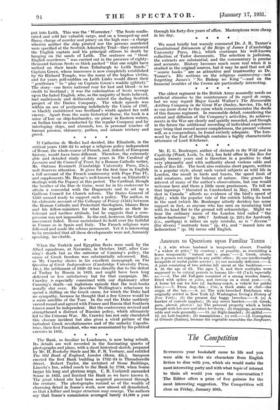* * * * If Catherine de Medici had decided,
like Elizabeth, in the critical years 1560-62 to adopt a religious pcilicy independent of Rome, the whole course of French, and, indeed, of European history, would have been different. Therefore, the extremely able and detailed study of these years in The Cardinal of Lorraine and the Council of Trent, by a Roman Catholic writer, Mr. Outram Evennett (Cambridge University Press, 25s.), well deserves attention. It gives for the first time in English a full account of the French controversy with Pope Pius IV, and supplements Mr. Bayne's well-known book on Elizabeth's dealings with the Papacy at this period. The Cardinal, though the brother of the Due de Guise, went far in his endeavour to attain a concordat with the Huguenots and to set up a Gallican Council for Church reform. The States General of 1560 seemed ready to support such a policy. The author, in his elaborate account of the Colloquy of Poissy (1561) between the Roman Catholic and Protestant theologians, blames Beza and his fellow-ministers for what he regards as their in- tolerant and tactless attitude, but he suggests that a com- promise was not impossible. In the end, however, the Galliean movement failed. Rome maintained its hold over the faithful in France as in Spain and Italy. The French religious wars followed and made the schism permanent. Yet it is interesting to be reminded that all these developments were not, humanly speaking, inevitable.




































 Previous page
Previous page